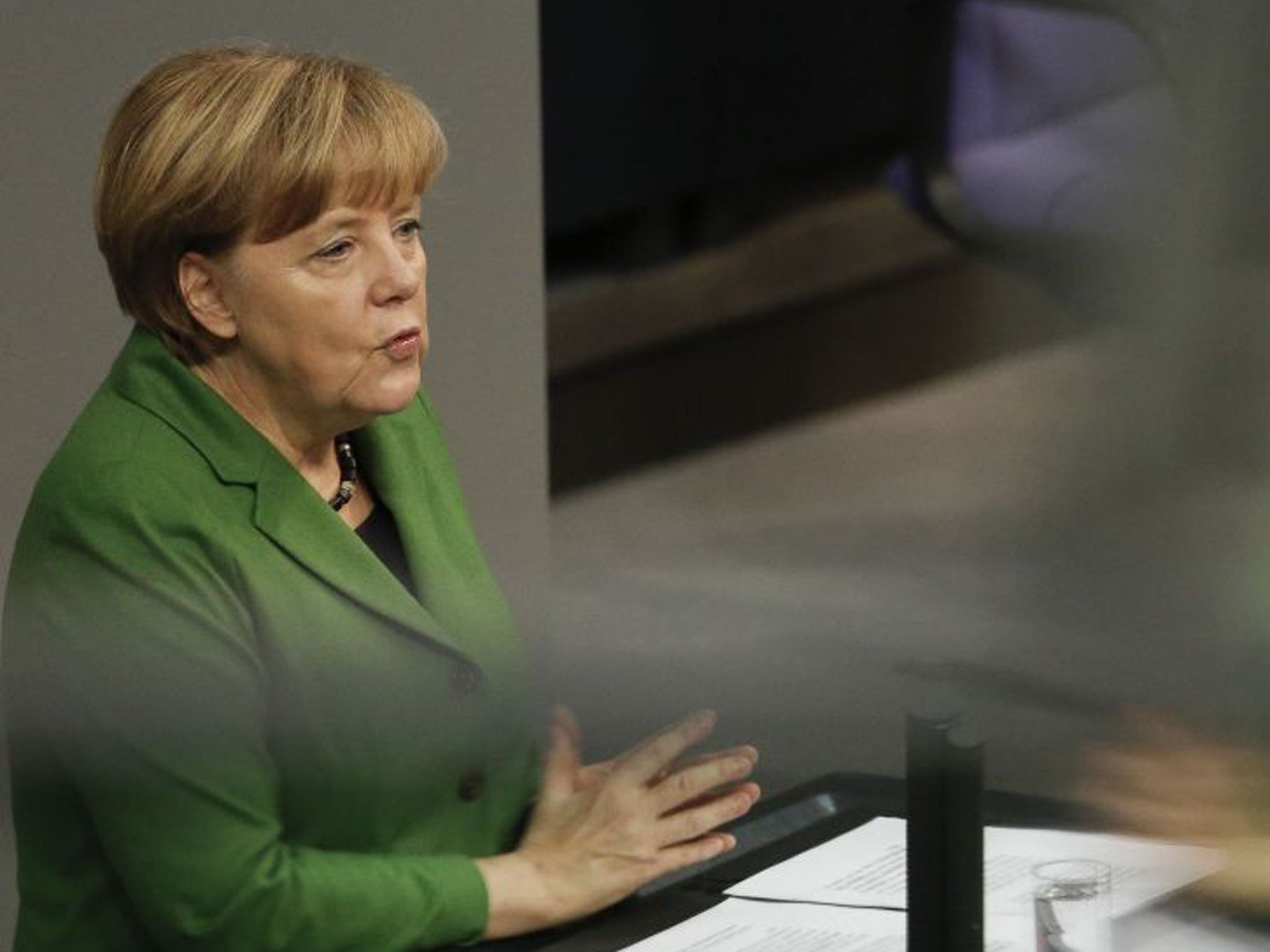German 'grand coalition': Angela Merkel reaches deal with SPD to form new government
Tricky hurdle remains for Merkel as Social Democrats must get approval of 470,000 members before she can be sworn in

Your support helps us to tell the story
From reproductive rights to climate change to Big Tech, The Independent is on the ground when the story is developing. Whether it's investigating the financials of Elon Musk's pro-Trump PAC or producing our latest documentary, 'The A Word', which shines a light on the American women fighting for reproductive rights, we know how important it is to parse out the facts from the messaging.
At such a critical moment in US history, we need reporters on the ground. Your donation allows us to keep sending journalists to speak to both sides of the story.
The Independent is trusted by Americans across the entire political spectrum. And unlike many other quality news outlets, we choose not to lock Americans out of our reporting and analysis with paywalls. We believe quality journalism should be available to everyone, paid for by those who can afford it.
Your support makes all the difference.Chancellor Angela Merkel's conservatives and Germany's main center-left party have reached a deal to form a new government on Wednesday, more than two months after the country's elections.
Negotiators from Merkel's Union bloc and the Social Democrats concluded their agreement to form a “grand coalition” of Germany's biggest parties after a final all-night round of talks.
Still, a potentially tricky hurdle remains before Merkel can be sworn in for a third term: the Social Democrats are putting the agreement to a ballot of their roughly 470,000 members, some of whom are deeply skeptical about becoming the chancellor's junior partner. The result is expected in mid-December.
Merkel won the election on 22 September but her partners in Germany's center-right government of the past four years, the pro-business Free Democrats, lost all their seats in parliament and her conservatives fell short of a majority to govern alone. That left her reaching across the aisle for a new coalition partner.
The Social Democrats secured key demands such as the introduction of a mandatory national minimum wage, which Germany is unusual among rich industrial powers in lacking. The €8.50 (£7.12) hourly minimum is to be introduced in 2015, but Julia Kloeckner, a deputy leader of Merkel's party, said it won't apply to everyone without exception until the beginning of 2017.
In addition, people born and educated in Germany who also hold a passport from a non-European Union country will no longer be obliged to choose one citizenship, a change that will apply largely to the children of Turkish immigrants.
Both sides secured changes to the pension system that they had sought, and Kloeckner stressed on ZDF television that “we will have no tax increases, and we will run up no new debts from 2015.” The conservatives adamantly refused to raise taxes, which the Social Democrats advocated doing during the election campaign.
Negotiators said the parties won't determine who gets what job in the new government until the Social Democrats have completed their membership ballot.
That could be tricky because the “grand coalition,” while popular among voters, is disliked by party activists — and the Social Democrats suffered a heavy electoral defeat in 2009 after serving as Merkel's junior governing party in her first term. The party finished a distant second in this year's vote.
“The Social Democratic signature on this coalition agreement is everywhere,” senior Social Democratic lawmaker Karl Lauterbach said. He added that “we succeeded on the most important points” but conceded that party leaders will have to overcome “many reservations” among members.
In the meantime, Merkel's second-term government remains in office on a caretaker basis.
AP
Join our commenting forum
Join thought-provoking conversations, follow other Independent readers and see their replies
Comments